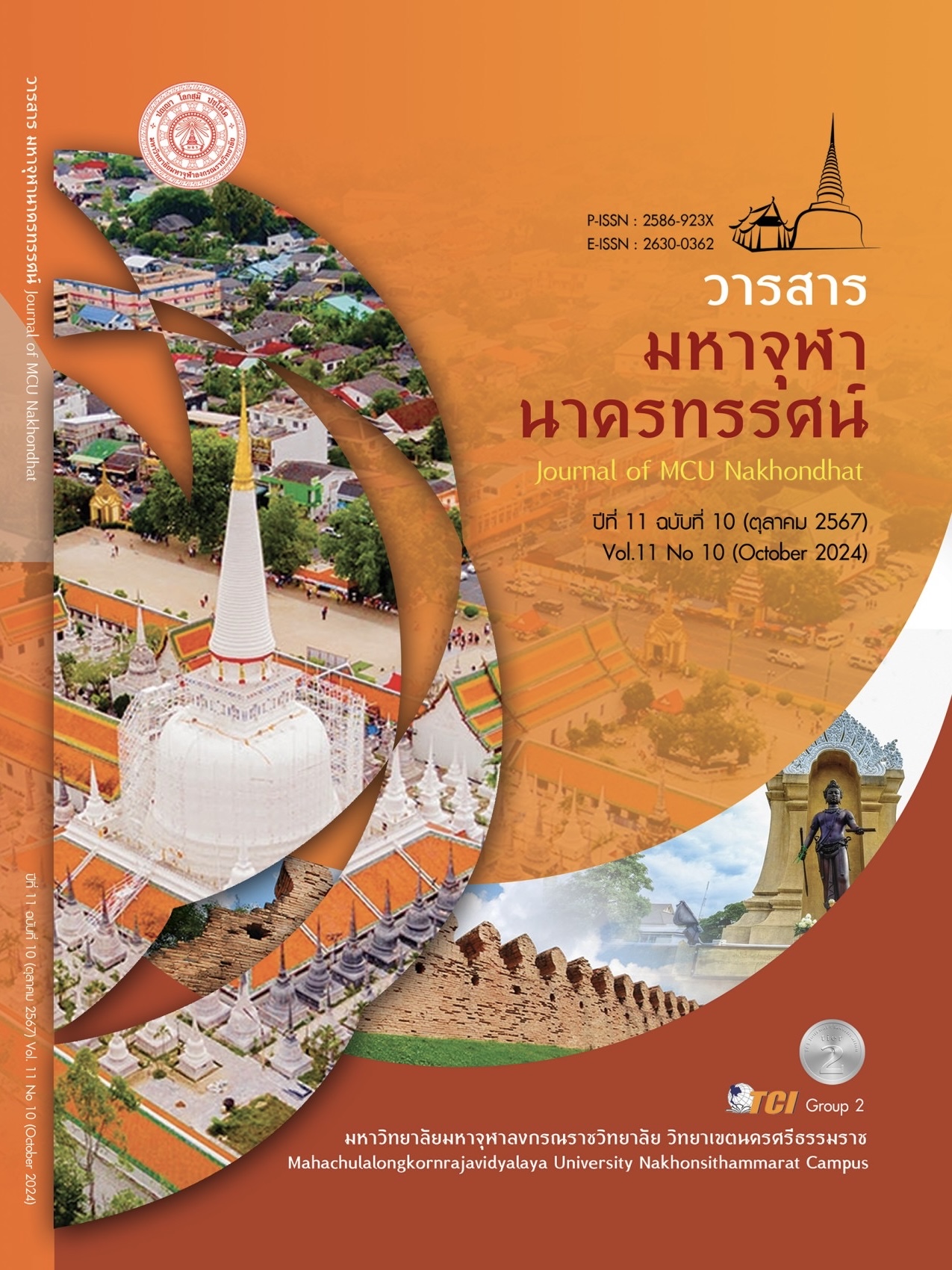EFFECTIVENESS OF CRITICAL THINKING SKILLS INNOVATION TRAINING AFFECTS BRAINWAVE TRANSFORMATION OF HIGHER EDUCATION STUDENTS IN THAILAND
Main Article Content
Abstract
The objectives of this research article were to study the effectiveness of the innovation activity package in critical thinking skills affects brain wave of the higher education students, the university in Thailand and to evaluate the activity package of critical thinking skill innovation training that affects the brain wave of the higher education students, the universities in Thailand. The research methodology is quantitative research using a quasi-experimental research. The sample group is the higher education students studying for bachelor’s degrees at Soun Dusit University in Bangkok 17 students. The research instruments are the activities package evaluated by expert 5 monk/person. The research findings were the evaluated result of the activity package assessed using the evaluation standard in 4 items found that the areas with the highest scores are Propriety ( = 5.00), followed by Accuracy (
= 4.96), Utility (
= 4.92), Feasibility of use (
= 4.84), and agreed. Show that the activity package is propriety, accuracy, utility, and feasibility at the evaluation’s highest level. And the effectiveness of the innovation activity package found that the mean of the critical thinking scores of the sample group who received the activity package in the post-experiment period were higher than the pre-experiment period. Statistically significant at the 0.05 level and the mean of brainwave scores increased by 3.3 percent. That signifies the innovation activity package in critical thinking skills improved the critical thinking skills and the brain wave of the higher education students in Thailand, and it can be applied to organize activities to develop critical thinking skills of the higher education students in advance.
Article Details

This work is licensed under a Creative Commons Attribution-NonCommercial-NoDerivatives 4.0 International License.
References
ชนาธิป พรกุล. (2554). การสอนกระบวนการคิด ทฤษฎีและการนำไปใช้. (พิมพ์ครั้งที่ 2). กรุงเทพมหานคร: สำนักพิมพ์แห่งจุฬาลงกรณ์มหาวิทยาลัย.
ทิศนา แขมมณี และคณะ. (2540). การคิดและการสอนเพื่อพัฒนากระบวนการคิด. โครงการพัฒนาคุณภาพการเรียนการสอนกลุ่มการเรียนรู้เพื่อการพัฒนาและกระบวนการคิด. กรุงเทพมหานคร: จุฬาลงกรณมหาวิทยาลัย.
บรรจง อมรชีวิน. (2556). การคิดอย่างมีวิจารณญาณ: Critical Thinking: หลักการพัฒนาการคิดอย่างมีตรรกะเหตุผล และดุลยพินิจ. นนทบุรี: อมรินทร์ บุ๊ค เซ็นเตอร์.
มารุต พัฒผล. (2557). การจัดการเรียนรู้ที่เสริมสร้างการรู้คิดและความสุขในการเรียนรู้. (พิมพ์ครั้งที่ 2). กรุงเทพมหานคร: จรัลสนิทวงศ์การพิมพ์.
ล้วน สายยศ และคณะ. (2531). หลักการวิจัยทางการศึกษา. (พิมพ์ครั้งที่ 2). กรุงเทพมหานคร: ศึกษาการ.
วิชัย วงษ์ใหญ่. (2523). การพัฒนาหลักสูตรและการสอน มิติใหม่. กรุงเทพมหานคร: สุวีริยาสาส์น.
วีนัส ภักดิ์นรา. (2565). รูปแบบการพัฒนาทักษะกระบวนการคิดขั้นสูงสำหรับนักศึกษาครู. วารสารสันติศึกษาปริทรรศน์ มจร, 10(7), 3050-3067.
ศิริชัย กาญจนวาสี. (2554). ทฤษฎีการประเมิน. (พิมพ์ครั้งที่ 7). กรุงเทพมหานคร: สำนักพิมพ์แห่งจุฬาลงกรณ์มหาวิทยาลัย.
สุวิทย์ มูลคำ และอรทัย มูลคำ. (2545). 21 วิธีจัดการเรียนรู้เพื่อพัฒนากระบวนการคิด. กรุงเทพมหานคร: ภาพพิมพ์.
อรุณ ศรีโนนยาง. (2563). การพัฒนาทักษะการคิดอย่างมีวิจารณญาณด้วยการเรียนรู้ เรื่อง พันธะโคเวเลนต์ ของนักเรียนชั้นมัธยมศึกษาปีที่ 4 โดยการเรียนรู้แบบสืบเสาะผ่านกิจกรรมปฏิบัติจริง. วารสารบัณฑิตศึกษา มหาวิทยาลัยราชภัฏวไลยอลงกรณ์ ในพระบรมราชูปถัมภ์, 14(2), 230-231.


